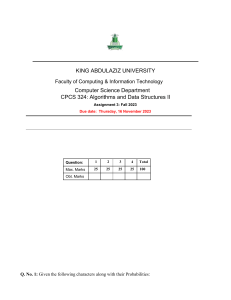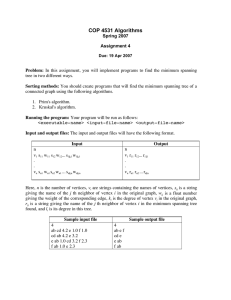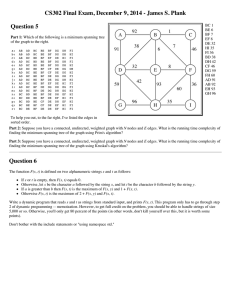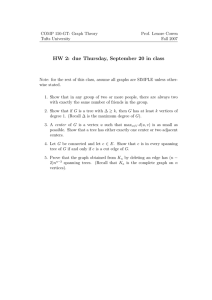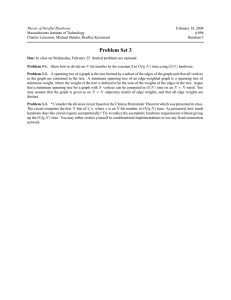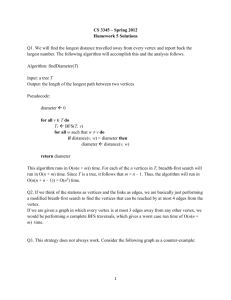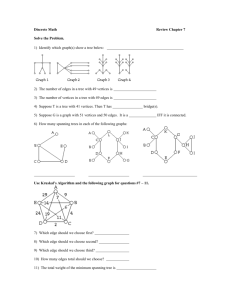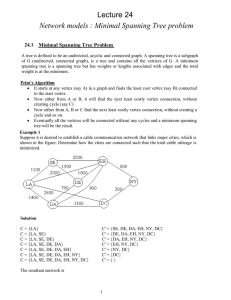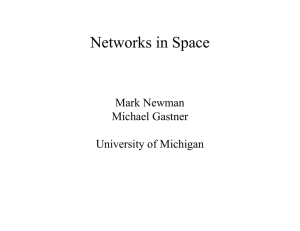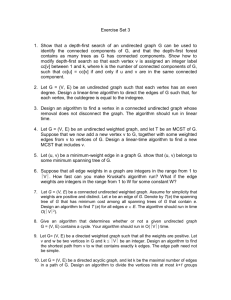CSE 431/531 Homework 5 Due date: Apr 22, 2016 Lecturer: Shi Li
advertisement
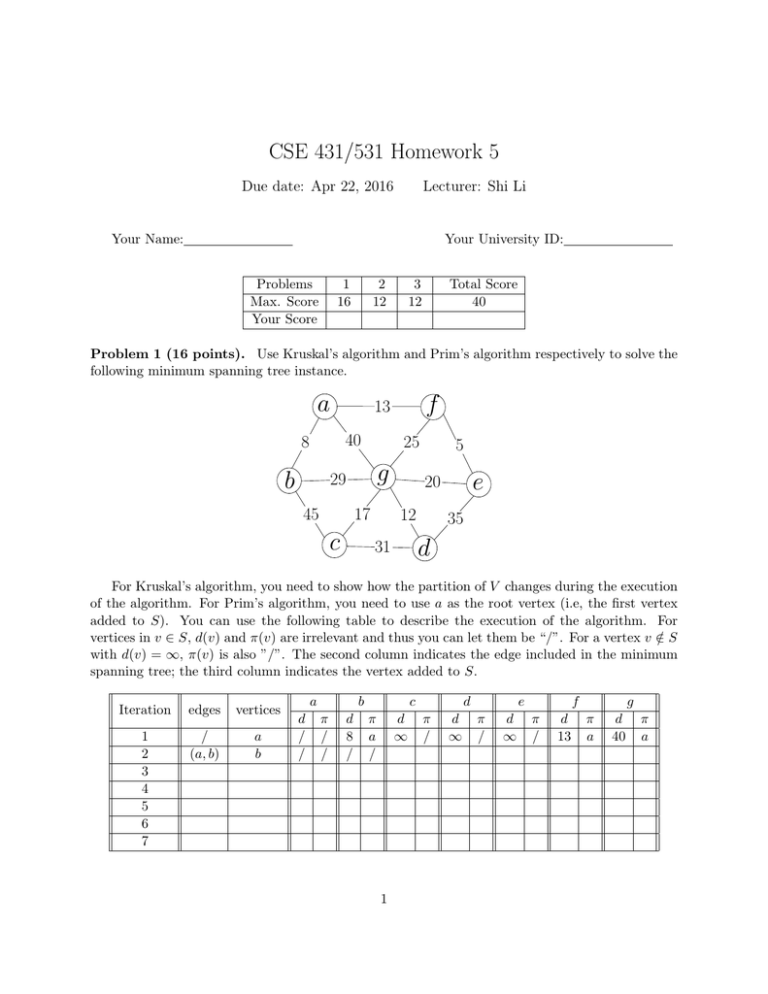
CSE 431/531 Homework 5 Due date: Apr 22, 2016 Lecturer: Shi Li Your Name: Your University ID: Problems Max. Score Your Score 1 16 2 12 3 12 Total Score 40 Problem 1 (16 points). Use Kruskal’s algorithm and Prim’s algorithm respectively to solve the following minimum spanning tree instance. a 40 8 b f 13 25 g 29 17 45 c 5 e 20 12 35 d 31 For Kruskal’s algorithm, you need to show how the partition of V changes during the execution of the algorithm. For Prim’s algorithm, you need to use a as the root vertex (i.e, the first vertex added to S). You can use the following table to describe the execution of the algorithm. For vertices in v ∈ S, d(v) and π(v) are irrelevant and thus you can let them be “/”. For a vertex v ∈ /S with d(v) = ∞, π(v) is also ”/”. The second column indicates the edge included in the minimum spanning tree; the third column indicates the vertex added to S. Iteration edges vertices 1 2 3 4 5 6 7 / (a, b) a b a d / / b π / / d 8 / c π a / d ∞ 1 d π / d ∞ e π / d ∞ f π / d 13 g π a d 40 π a Problem 2 (12 points). Assume all edges of an undirected graph G = (V, E) have different weights w. Prove that an edge e ∈ E is in the minimum spanning tree of G if and only if there 0 exists a cut (A ⊆ V, V \ A), such that e = arg mine0 =(u,v)∈E:u∈A,v∈A / w(e ). Problem 3 (12 points). Problem 2 implies that if all edges in G = (V, E) have different weights, then G has a unique minimum spanning tree. However, the inverse statement is not true: it is possible that some edges in G have the same weight, but G has a unique minimum spanning tree. Give a polynomial-time algorithm that decides if a given graph G = (V, E) with weight function w : E → R has a unique minimum spanning tree or not. You need to explain why your algorithm is correct. 2
